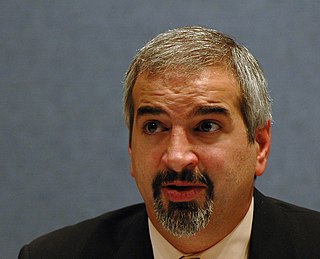A Quote by David Petraeus
I think it's reality that Iran is going to have influence in Iraq. All elements of Iraq accepted that.
Related Quotes
By accident of geography, the world's major oil resources are in Shi'ite-dominated areas. Iran's oil is concentrated right near the gulf, which happens to be an Arab area, not Persian. Khuzestan is Arab, has been loyal to Iran, fought with Iran not Iraq during the Iran-Iraq war. This is a potential source of dissension. I would be amazed if there isn't an attempt going on to stir up secessionist elements in Khuzestan.
The Iranians are Moslems and the Iraqi are Moslems. Both are certain that there is no God but Allah and that Mohammed is his prophet and believe it with all their hearts. And yet, at the moment, Iraq doesn't trust Iran worth a damn, and Iran trusts Iraq even less than that. In fact, Iran is convinced that Iraq is in the pay of the Great Satan (that's God-fearing America, in case you've forgotten) and Iraq counters with the accusation that it is Iran who is in the pay of the Great Satan. Neither side is accusing the Godless Soviets of anything, which is a puzzle
Ironically, the single thing that has strengthened Iran over the last several years has been the war in Iraq. Iraq was Iran's mortal enemy. That was cleared away. And what we've seen over the last several years is Iran's influence grow. They have funded Hezbollah, they have funded Hamas, they have gone from zero centrifuges to 4,000 centrifuges to develop a nuclear weapon.
You have two nations, Iraq and Iran. And they were essentially the same military strength. And they'd fight for decades and decades. They'd fight forever. And they'd keep fighting and it would go - it was just a way of life. America got in, we decapitated one of those nations, Iraq. I said, "Iran is taking over Iraq." That's essentially what happened.
It was not the United States who invaded Kuwait; it was Iraq. It was not the United States that went to war with Iran; it was Iraq. It was not the United States that fired chemical weapons at Iran; it was Iraq. And it was not the United States that murdered innocent Iraqi citizens with chemical weapons; it was Iraq.


































